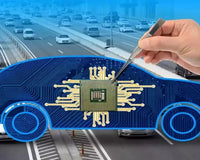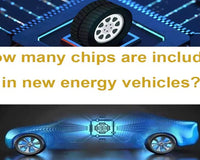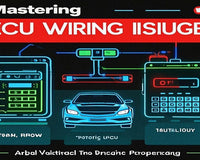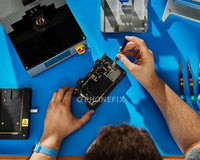There's nothing more frustrating than when your car decides to stop starting after you've been driving it for a while. You're out and about, minding your own business, and suddenly, you turn the key, and... nothing. This can be a major headache, but understanding the potential causes can help you get back on the road faster.
Possible Reasons for the Problem.
1. Fuel System Issues.
A common culprit could be problems within the fuel system. After driving, the fuel pump might overheat. This can happen if there's a blockage in the fuel filter, restricting the flow of fuel. To check if this is the case, you can use a multimeter. A multimeter can measure the voltage going to the fuel pump. If the voltage is lower than what it should be, it could indicate a problem with the electrical supply to the pump or an issue with the pump itself.
2. Ignition System Malfunctions.
The ignition system is crucial for starting your car. Components like the spark plugs, ignition coils, or the ignition control module can fail after extended use. Spark plugs wear out over time, and if they're not firing correctly, the engine won't start. By using an ECU programmer, you can check for error codes related to the ignition system. If there are codes indicating problems with the spark plugs or ignition coils, it's a sign that these components might need to be replaced.
3. Electrical Problems.
Electrical issues can also cause your car not to start after driving. A weak or dying battery is a common problem. Even if the battery was fine when you started driving, a faulty alternator might not be charging it properly while you're on the road. Using a multimeter, you can measure the battery voltage. A healthy battery should have around 12.6 volts when fully charged. If it's significantly lower, it could be the battery or the alternator. Additionally, problems with wiring, such as corroded or loose connections, can disrupt the electrical flow.
4. Engine Sensor Failures.
Modern cars rely on a multitude of sensors to ensure the engine runs smoothly. Sensors like the crankshaft position sensor, camshaft position sensor, or the mass airflow sensor can malfunction. When these sensors fail, the ECU may not receive the correct information, and it can prevent the engine from starting. A car repair chip can sometimes be used to bypass or correct certain sensor related issues. However, it's important to diagnose the exact problem first. An ECU programmer can also help in reading the sensor data and identifying if there are any incorrect readings coming from these sensors.
There are many reasons why your vehicle may not start. To ensure the problem isn't serious, you must thoroughly investigate and rule out some common causes. Before you head to the nearest auto repair shop or repair shop, you should be able to try some general remedies to get your vehicle running again.
It is preferable to call a towing service and get professional assistance if you are unsure how to perform any of these repairs. Poor fixes can cause additional harm. But having a basic understanding of these issues and the tools that can help diagnose them can save you time and money in the long run.
Car Stops Starting Mid - Drive: What's Going On?










